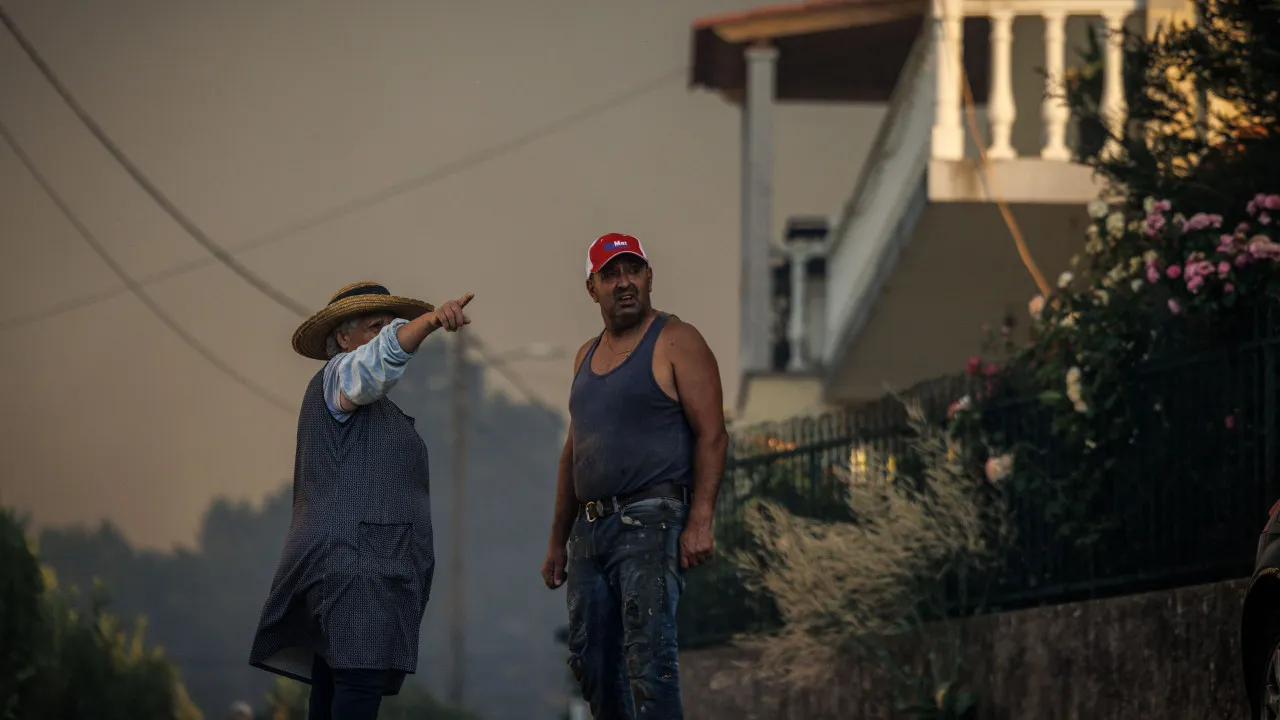
The live performance of Fado Bicha left a strong impression on Justine Lemahieu. “I was deeply moved by their beauty and talent. I was in front of two extremely powerful artists who were challenging boundaries and power dynamics,” she recalled in her statements.
Realizing the importance of Lila Tiago and João Caçador’s work, she felt a strong desire to give it visibility.
Moreover, she believed the duo could help her grow concerning gender norms and questions about her condition as a woman.
“They were taking a political stance on these issues—topics that were also important for me to reflect on and share with the public,” she stated.
At the beginning of 2019, she decided to contact Lila Tiago and João Caçador to present them with the project. Initially, the singer showed some resistance.
“It was João who insisted that we meet her. On one hand, I felt a kind of humility—this happened when the project was very recent, and I thought it didn’t make sense for someone to already be following us to make a film about us. On the other hand, it was uncomfortable to have someone constantly filming us,” she recalled.
During their first meeting, Lila and João were “very impressed” with the director and found it “curious and interesting that a woman who was not born and raised in Portugal” was interested in making a film about Fado Bicha.
The Fado Bicha project emerged in 2017, and their first single, “Namorico do André,” was released two years later. The duo’s calling card essentially offers a glimpse into the project, which aims to highlight the stories of the LGBTQIA+ community (Lesbian, Gay, Bisexual, Transgender, Queer, Intersex, Asexual, and all other diverse possibilities of sexual orientation and gender identification) through fado.
This is an adaptation of a well-known fado—“Namorico da Rita,” immortalized by Amália Rodrigues—but in which Fado Bicha sings about the “courtship” between André, a fishmonger, and Chico, a fisherman.
For four years, Justine Lemahieu followed Lila and João at concerts, both on stage and backstage, as well as in more personal settings.
“Justine always maintained an attitude that was not only discreet and gentle but also attentive, curious, and willing to listen and understand,” Lila noted, reflecting on how the director’s presence gradually became more invisible over time.
Although it’s not perceptible to those watching the film, Lila can recall all the moments from when she forgot Justine was filming.
“This has to do with her competence as a documentary filmmaker, as well as the relationship we developed and my comfort in knowing that the material would be handled with great care; and also understanding the direction we were heading, the type of work she wanted to create about us, and what I wanted,” she said.
Filming took place between 2019 and 2023, amidst a pandemic, with Justine Lemahieu accumulating 60 hours of footage.
Until reaching the final result, almost an hour and a half long, the director shared the work with the artists.
“The relationship was also built through screenings. It is very difficult to portray people accurately, to see and understand them better, what they are telling me. It was important to share, to show. I edited the film alone, but always with Lila and João’s insights guiding me in the stories I told,” she explained.
Creating ‘As Fado Bicha’ was a highly transformative experience for Justine Lemahieu, prompting her return to university to study Anthropology and write a master’s thesis about the film process.
“I felt it was very important to educate myself on gender issues and learn about the history of Fado. I learned a lot through this film,” she shared.
After being presented at three festivals—IndieLisboa and Queer Lisboa in Portugal and the Thessaloniki Documentary Festival in Greece—the film ‘As Fado Bicha’ is now having its commercial release. The director has a “very clear” goal for it: “to reach the widest possible audience.”
“That’s why I crafted the film, for it to be seen by everyone,” she affirmed.
Lila hopes the film “reaches people who initially wouldn’t be interested, but who suddenly become moved by what they see and feel a common bond of Humanity.”
“These are two queer individuals talking about their childhood, the violence they suffered, their families, friendship, and love. It creates a very strong possibility for empathy, which is the great strategy, the great resource, and the great beauty of a film like this. It allows a person who has no relation to the community, the thought, the people, who thinks they don’t know queer people to become emotional, moved by the lives of two queer individuals who are Portuguese,” she stated.




